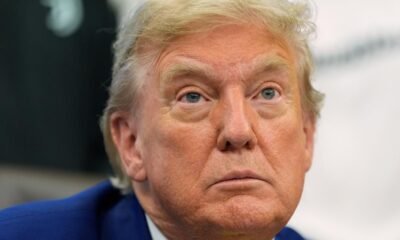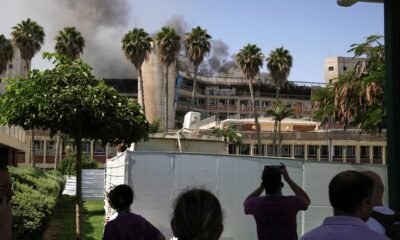cct-tracking
Hegseth Reveals New Insights on US Role in Iran-Israel Conflict During Pentagon Briefing

In a significant escalation of hostilities, the United States launched attacks on three locations in Iran early Sunday, marking its direct involvement in Israel’s ongoing war against Iran. President Donald Trump declared this operation aimed at incapacitating Iran’s nuclear program as a critical step in curtailing a longtime adversary.
The U.S. strikes targeted the Fordo, Isfahan, and Natanz sites. Trump stated that these operations effectively “obliterated” key nuclear facilities. Iranian officials swiftly condemned the action, asserting that their nation’s right to self-defense had been violated.
Iran’s Foreign Minister Abbas Araghchi labeled the U.S. strikes as an aggressive act, claiming they had crossed a “very big red line.” He emphasized that the window for diplomatic resolutions had closed, and he announced plans to consult with Russian President Vladimir Putin.
In the immediate aftermath, Iran’s Revolutionary Guard retaliated by launching a barrage of missiles at Israel, leading to injuries and significant damage in Tel Aviv. Israeli sources reported that their military had effectively responded to these missile threats.
The U.S. military also utilized B-2 stealth bombers and launched Tomahawk missiles to facilitate these operations. Reports indicated that strikes against Fordo specifically employed bunker-buster bombs, showcasing advanced military capabilities.
As tensions escalated, leaders around the globe expressed concerns over potential wider conflicts stemming from these developments. U.N. Secretary-General Antonio Guterres called for diplomacy, warning of catastrophic consequences if escalation continues.
Israel and the U.S. officials regard Iran as an imminent threat, asserting that Tehran’s nuclear ambitions could lead to a bomb. Critics of Trump’s decisions questioned the wisdom of U.S. military engagement, recalling his prior promises to avoid entanglements in foreign conflicts.
Despite these doubts, Trump defended the strikes, framing them as essential in preventing Iran from acquiring nuclear weapons. A statement from his administration indicated that this operation is a historic moment for the U.S. and its allies.
As international players analyze the fallout from this conflict, the situation remains precarious, with potential implications that reach far beyond the immediate combatants.


















